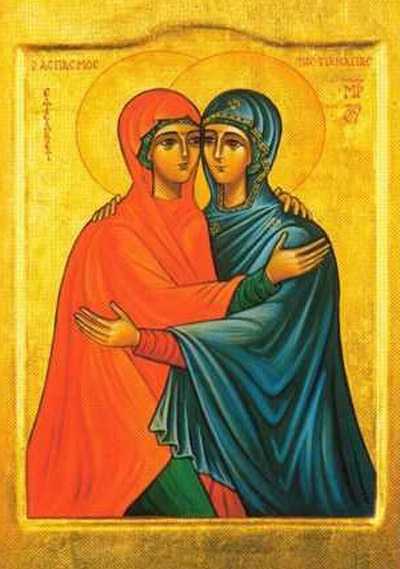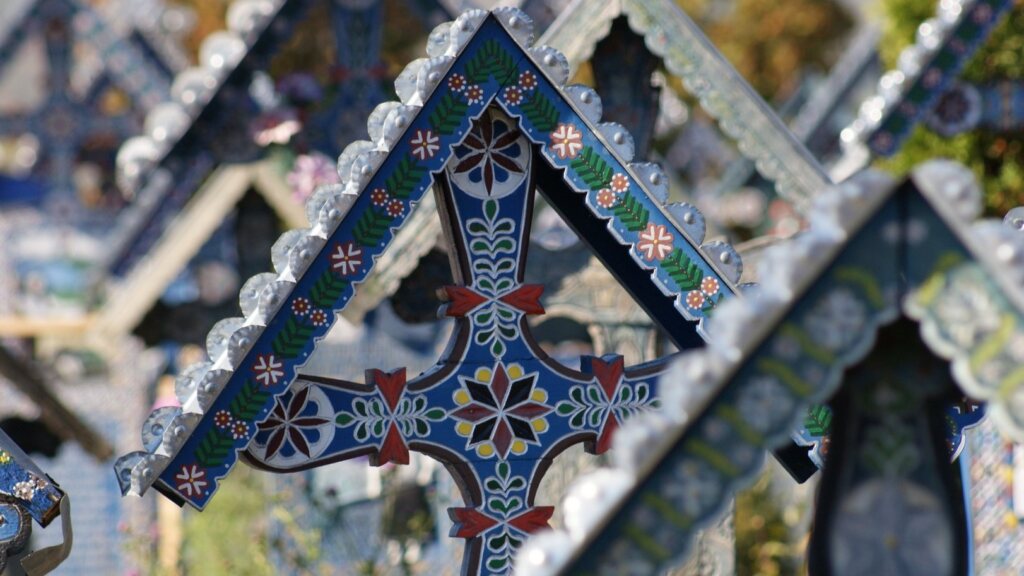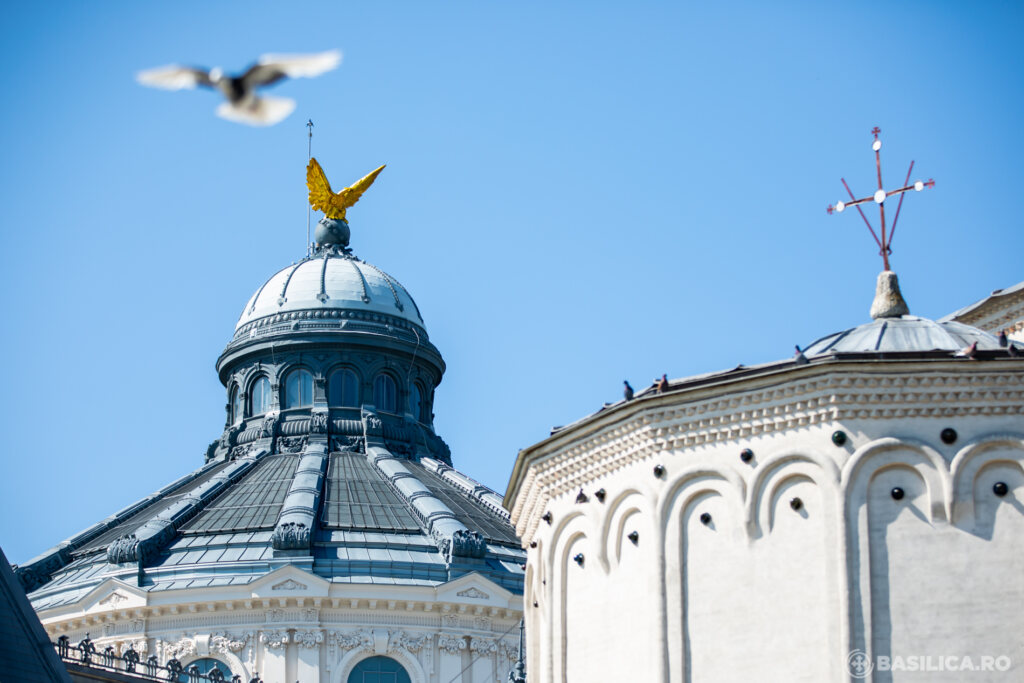Orthodox Calendar February 1
Forefeast of the Meeting of our Lord in the Temple
The Typikon should be consulted if the Forefeast falls on the Sunday of the Pharisee, the Publican, or Meatfare.
Because of the Forefeast of the Meeting of the Lord, the service to Saint Tryphon (February 1) may be moved to Compline or to another day, as the rector decides, unless the parish is dedicated to Saint Tryphon, or there is a particular devotion to him.
Troparion — Tone 1
The celestial choir of heavenly angels / bends down to the earth / and sees the First-born of all creation / being carried into the Temple as a babe / by a Mother who has not known man, / and in amazement sings with us / a pre-festal hymn.
Martyr Tryphon
He was born in Phrygia, one of the districts of Asia Minor, in the village of Lampsacus. From his early years, the Lord granted him the power to cast out demons and to heal various maladies. He once saved the inhabitants of his native city from starvation. Saint Tryphon, by the power of his prayer, turned back a plague of locusts that were devouring the grain and devastating the fields.
Saint Tryphon gained particular fame by casting out an evil spirit from the daughter of the Roman emperor Gordian (238-244). Helping everyone in distress, he asked only one thing from them: faith in Jesus Christ, by Whose grace he healed them.
When Emperor Decius (249-251) assumed the imperial throne, he began a fierce persecution of Christians. Someone reported to the commander Aquilinus that Saint Tryphon was boldly preaching faith in Christ and that he led many to Baptism. The saint was arrested and subjected to interrogation, during which he fearlessly confessed his faith.
He was subjected to harsh tortures: they beat him with clubs, raked his body with iron hooks, they scorched his flesh with fire, and led him through the city after iron nails were hammered into his feet. Saint Tryphon bravely endured all the torments without complaint.
Finally, he was condemned to beheading with a sword. The holy martyr prayed before his execution, thanking God for strengthening him in his sufferings. He also asked the Lord to bless those who should call upon his name for help. Just as the soldiers raised the sword over the head of the holy martyr, he surrendered his soul into the hands of God. This event occurred in the city of Nicea in the year 250.
Christians wrapped the holy body of the martyr in a clean shroud and wanted to bury him in the city of Nicea, where he suffered, but Saint Tryphon in a vision commanded them to take his body to his native land to the village of Lampsada. Later on, the relics of Saint Tryphon were transferred to Constantinople, and then to Rome.
In Russia, Saint Tryphon is regarded as the patron saint of birds. There is a story that when Tsar Ivan the Terrible was out hunting, his falconer carelessly allowed the Tsar’s favorite falcon to fly away. The Tsar ordered the falconer Tryphon Patrikeiev to find the bird within three days, or else he would be put to death. Tryphon searched all through the forest, but without luck.
On the third day, exhausted by long searching, he returned to Moscow to the place called Marinaya Grove. Overcome with weariness, he lay down to rest, fervently praying to his patron saint, the Martyr Tryphon, for help.
In a dream he saw a youth on a white horse, holding the Tsar’s falcon on his hand. The youth said, “Take the lost bird, go to the Tsar and do not grieve.” When he awakened, the falconer actually spotted the falcon on a pine tree. He took it to the Tsar and told him about the miraculous help he received from the holy Martyr Tryphon. Grateful to Saint Tryphon for saving his life, Tryphon Patrikeiev built a chapel on the spot where the saint appeared. Later on, he also built a church dedicated to the holy Martyr Tryphon in Moscow.
Troparion — Tone 4
Your holy martyr Tryphon, O Lord, / through his suffering has received an incorruptible crown from You, our God. / For having Your strength, he laid low his adversaries, / and shattered the powerless boldness of demons. / Through his intercessions, save our souls!
Holy Martyrs Perpetua, Felicitas and those with them
Vibia Perpetua was from a patrician family, and lived in Carthage. She came to believe in Christ, and was baptized after her arrest as a Christian. A few days later, the twenty-two-year-old woman was taken to prison with her infant son. Arrested with her was her brother Saturus, the servants Felicitas, Revocatus, Saturninus and Secundulus, who were also catechumens.
Despite the exhortations of her father, who persistently appealed to her maternal feelings, the widowed Saint Perpetua refused to offer sacrifice to the pagan gods.
Before their execution, Saints Perpetua and Saturus had visions from God, which strengthened their souls. Saint Felicitas, who was eight months pregnant, gave birth to a baby girl while in prison. She rejoiced because now she would be permitted to die with her companions. There was a law forbidding the execution of pregnant women.
The martyrs were led from the prison into the amphitheater. Saturninus and Revocatus had to face a leopard and a bear. Saints Perpetua and Felicitas were brought to the arena in nets, and they were pitted against a wild heifer. After being tossed to the ground by the heifer, the two women were led out of the arena. Saturus was bitten by a leopard, but did not die. The martyrs were then led to a certain spot to be killed by the sword. The young gladiator who was to execute Saint Perpetua was inexperienced and did not kill her with the first blow. She herself took his hand and guided it to her throat, and so she received the crown of martyrdom. This occurred in about the year 203.
The amphitheater where these saints perished is located a few miles from the city of Tunis. In 1881, a room was discovered opposite the modern entrance into the arena. Some say this was a cell where the victims waited to be brought into the arena.
Troparion — Tone 4
Your holy martyrs, O Lord, / through their sufferings have received incorruptible crowns from You, our God. / For having Your strength, they laid low their adversaries, / and shattered the powerless boldness of demons. / Through their intercessions, save our souls!

Tr by oca.org






